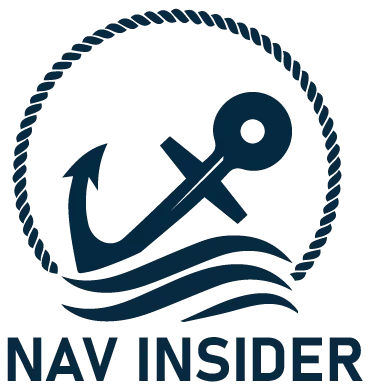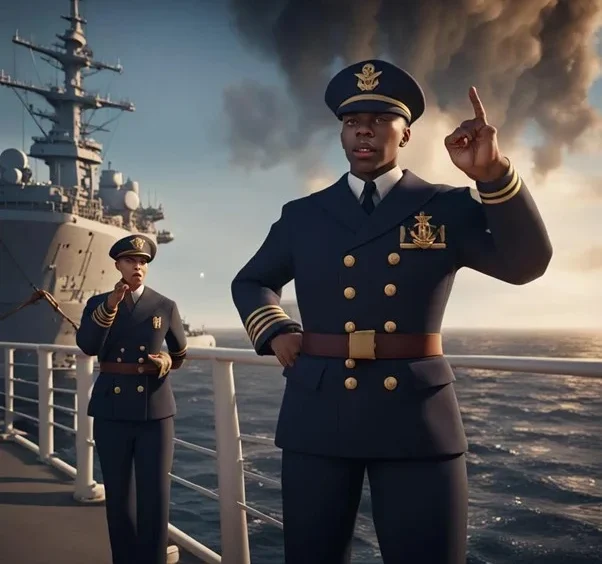“Master’s Overriding Authority & Master’s Discretion: Which Really Commands the Ship?”
A Close Look at Maritime Safety Laws: Master’s Overriding Authority vs. Master’s Discretion
One individual bears the extreme obligation in the perplexing world of shipping, where operational difficulties, commercial requests, and safety regularly collide. This individual is the master of the vessel. The significance of giving the Master the authority to take decisive action in urgent circumstances is recognized by international conventions. In this context, two key ideas are:
1) The ISM Code’s Master’s Overriding Authority
2) SOLAS Master’s Discretion
However, what are the true meanings of these terms? What distinguishes them? Where do they overlap, too?
Let’s investigate.
What does the ISM Code’s Master’s Overriding Authority mean?
A pillar of contemporary maritime operations, the International Safety Management (ISM) Code was created to guarantee safety at sea, prevention of human injury or loss of life, and avoidance of harm to the environment and property.
Under the ISM Code (specifically Section 5.2), the company must clearly define and document that the Master has the overriding authority to:
Make decisions regarding the safety of the ship and crew.
Take vital actions to protect life, property, and the marine environment.
Override company procedures if required in an emergency.
In straightforward terms, no commercial weight, no shore management decision, no internal policy can stop the Master from taking an action that he/she accepts is vital to save lives, the ship, or the environment.
“In the moment of crisis, it is not the policies, but the courage of the Master that saves lives.”
Master’s Overriding Authority Examples:
Severe Weather Evacuation: Without anticipating shore approval, the master may postpone, reroute, or look for a safe port if a ship is headed toward a storm and the company demands on adhering to the schedule.
Medical Emergency at Sea: The master has the authority to direct the ship toward the closest harbour for medical help, putting medical needs ahead of business interests, if a crew member has a heart attack while at sea and the ship is told to continue to the discharge port.
Structural Damage: Even in cases where there are commercial misfortunes, the master may choose to beach the ship or terminate cargo operations if a ship’s hull is damaged after colliding with floating debris.
Pollution Prevention: Should there be a possibility of an oil spill due to a broken pipeline amid loading, the Master can immediately order operations to halt, despite the port or charterer’s insistence.
These occasions illustrate that the Master’s responsibility to safeguard people, the ship, and the environment takes precedence over all other duties.
What does SOLAS mean by Master’s Discretion?
The idea of Master’s Discretion is presented in Chapter V (Regulation 34-1) of the Safety of Life at Sea (SOLAS) Convention. SOLAS states that:
“The Master shall have the ultimate authority to make decisions with regard to the safety of the ship and the marine environment.”
The Master’s Discretion under SOLAS highlights that the shipowner, charterer, or any other party may not obstruct or limit the Master.
Safety and environmental preservation must always come first in decisions, even if they go against commerce interests.
“The Master acts without asking permission when safety calls.”
Master’s Discretion Examples:
Departure Delay: Even in spite of the fact that the charter party agreement penalizes late sailings, the master has the authority to delay the vessel’s departure from harbour if there is persistent heavy fog or poor visibility.
Decisions about loading and unloading: The Master may stop operations without consulting the company or charterer if cargo is being loaded or unloaded in hazardous circumstances (such as strong winds or thunderstorms).
Ballast Water Operations: If appropriate conventions (like sediment management) cannot be safely followed, the Master may decline the port’s request to finish ballasting as soon as possible.
Crew Fatigue Management: In spite of pressure from port or company agents, the master may postpone sailing until important crew members have had sufficient time to recoup from a long and saddling operation.
These cases illustrate how SOLAS recognizes and maintains the practical realities of shipboard decision-making — enabling Masters to maintain safety without interference.
Master’s Discretion Origin and Master’s Overriding Authority Differ:
ISM Code is the Master’s Overriding Authority (Chapter 5).
SOLAS (Chapter V, Regulation 34-1) at the discretion of the master
Focus: Master’s Overriding Authority: Giving the Master the ability to neglect inner business conventions in order to guarantee safety.
Master’s Discretion: Giving the Master the opportunity to make choices without being impacted by exterior business demands.
Scope: Master’s Overriding Authority: Responses to crises and dangers to public safety.
Master’s Discretion: Making operational choices when safety is at risk, even amid routine tasks
Nature:
Master’s Overriding Authority: Typically conjured in exceptional, crisis situations.
Master’s Discretion: Useful for both ordinary and urgent decisions.
The Master’s Overriding Authority is primarily aimed at shipowners and businesses.
Master’s Discretion: Focused on all exterior parties, such as cargo interface and charterers.
“The Master is supported by the ISM Code and SOLAS — so that no hesitation clouds critical action.”
Comparable between the Master’s Discretion and Overriding Authority
Both thoughts have a few essential thoughts in common, in spite of their differences:
Safety First: The environment, the ship, the cargo, and human life are all given top priority.
Master’s Independence: They recognize that the Master’s control is unaffected by commerce interests.
Legal Assurance: They ensure Masters from legal or commercial repercussions when they act in good faith for safety.
Mandated Documentation: Both require that these rights are acknowledged formally — ISM through the Safety Management System (SMS) and SOLAS through adherence to worldwide regulations.
What Makes These Thoughts So Imperative in Today’s World?
Commercial weights are consistent in modern shipping. Charterers expect strict timetables. Owners look for ways to cut costs. Clockwork timing controls port operations.
The ability of a Master to act fearlessly and decisively is essential in this setting.
The ISM Code and SOLAS guarantee that human safety and environmental protection are not sacrificed on the altar of profit.
Moreover, in the disastrous event of an accident, authorities will scrutinize whether the Master worked out his/her overriding authority or discretion properly. Failure to do so may lead to genuine lawful consequences, including personal liability.
“Regulations empower the Master; wisdom and judgment bring those powers to life.”
In conclusion
In summary, the Master’s Overriding Authority gives emergency personnel the ability to neglect corporate policies.
Master’s Discretion refers to independent decision-making that is unaffected by trade interests.
Both uphold the revered maritime tenet that the Master is the ship’s top safety authority.
These provisions are eventually more than just legal clauses; they are a solemn trust entrusted to the Master, ensuring that there is no misconception with respect to who must lead and who must act when lives are at risk
“Master’s Overriding Authority & Master’s Discretion: Which Really Commands the Ship?”
A Close Look at Maritime Safety Laws: Master’s Overriding Authority vs. Master’s Discretion
One individual bears the extreme obligation in the perplexing world of shipping, where operational difficulties, commercial requests, and safety regularly collide. This individual is the master of the vessel. The significance of giving the Master the authority to take decisive action in urgent circumstances is recognized by international conventions. In this context, two key ideas are:
1) The ISM Code’s Master’s Overriding Authority
2) SOLAS Master’s Discretion
However, what are the true meanings of these terms? What distinguishes them? Where do they overlap, too?
Let’s investigate.
What does the ISM Code’s Master’s Overriding Authority mean?
A pillar of contemporary maritime operations, the International Safety Management (ISM) Code was created to guarantee safety at sea, prevention of human injury or loss of life, and avoidance of harm to the environment and property.
Under the ISM Code (specifically Section 5.2), the company must clearly define and document that the Master has the overriding authority to:
Make decisions regarding the safety of the ship and crew.
Take vital actions to protect life, property, and the marine environment.
Override company procedures if required in an emergency.
In straightforward terms, no commercial weight, no shore management decision, no internal policy can stop the Master from taking an action that he/she accepts is vital to save lives, the ship, or the environment.
“In the moment of crisis, it is not the policies, but the courage of the Master that saves lives.”
Master’s Overriding Authority Examples:
Severe Weather Evacuation: Without anticipating shore approval, the master may postpone, reroute, or look for a safe port if a ship is headed toward a storm and the company demands on adhering to the schedule.
Medical Emergency at Sea: The master has the authority to direct the ship toward the closest harbour for medical help, putting medical needs ahead of business interests, if a crew member has a heart attack while at sea and the ship is told to continue to the discharge port.
Structural Damage: Even in cases where there are commercial misfortunes, the master may choose to beach the ship or terminate cargo operations if a ship’s hull is damaged after colliding with floating debris.
Pollution Prevention: Should there be a possibility of an oil spill due to a broken pipeline amid loading, the Master can immediately order operations to halt, despite the port or charterer’s insistence.
These occasions illustrate that the Master’s responsibility to safeguard people, the ship, and the environment takes precedence over all other duties.
What does SOLAS mean by Master’s Discretion?
The idea of Master’s Discretion is presented in Chapter V (Regulation 34-1) of the Safety of Life at Sea (SOLAS) Convention. SOLAS states that:
“The Master shall have the ultimate authority to make decisions with regard to the safety of the ship and the marine environment.”
The Master’s Discretion under SOLAS highlights that the shipowner, charterer, or any other party may not obstruct or limit the Master.
Safety and environmental preservation must always come first in decisions, even if they go against commerce interests.
“The Master acts without asking permission when safety calls.”
Master’s Discretion Examples:
Departure Delay: Even in spite of the fact that the charter party agreement penalizes late sailings, the master has the authority to delay the vessel’s departure from harbour if there is persistent heavy fog or poor visibility.
Decisions about loading and unloading: The Master may stop operations without consulting the company or charterer if cargo is being loaded or unloaded in hazardous circumstances (such as strong winds or thunderstorms).
Ballast Water Operations: If appropriate conventions (like sediment management) cannot be safely followed, the Master may decline the port’s request to finish ballasting as soon as possible.
Crew Fatigue Management: In spite of pressure from port or company agents, the master may postpone sailing until important crew members have had sufficient time to recoup from a long and saddling operation.
These cases illustrate how SOLAS recognizes and maintains the practical realities of shipboard decision-making — enabling Masters to maintain safety without interference.
Master’s Discretion Origin and Master’s Overriding Authority Differ:
ISM Code is the Master’s Overriding Authority (Chapter 5).
SOLAS (Chapter V, Regulation 34-1) at the discretion of the master
Focus: Master’s Overriding Authority: Giving the Master the ability to neglect inner business conventions in order to guarantee safety.
Master’s Discretion: Giving the Master the opportunity to make choices without being impacted by exterior business demands.
Scope: Master’s Overriding Authority: Responses to crises and dangers to public safety.
Master’s Discretion: Making operational choices when safety is at risk, even amid routine tasks
Nature:
Master’s Overriding Authority: Typically conjured in exceptional, crisis situations.
Master’s Discretion: Useful for both ordinary and urgent decisions.
The Master’s Overriding Authority is primarily aimed at shipowners and businesses.
Master’s Discretion: Focused on all exterior parties, such as cargo interface and charterers.
“The Master is supported by the ISM Code and SOLAS — so that no hesitation clouds critical action.”
Comparable between the Master’s Discretion and Overriding Authority
Both thoughts have a few essential thoughts in common, in spite of their differences:
Safety First: The environment, the ship, the cargo, and human life are all given top priority.
Master’s Independence: They recognize that the Master’s control is unaffected by commerce interests.
Legal Assurance: They ensure Masters from legal or commercial repercussions when they act in good faith for safety.
Mandated Documentation: Both require that these rights are acknowledged formally — ISM through the Safety Management System (SMS) and SOLAS through adherence to worldwide regulations.
What Makes These Thoughts So Imperative in Today’s World?
Commercial weights are consistent in modern shipping. Charterers expect strict timetables. Owners look for ways to cut costs. Clockwork timing controls port operations.
The ability of a Master to act fearlessly and decisively is essential in this setting.
The ISM Code and SOLAS guarantee that human safety and environmental protection are not sacrificed on the altar of profit.
Moreover, in the disastrous event of an accident, authorities will scrutinize whether the Master worked out his/her overriding authority or discretion properly. Failure to do so may lead to genuine lawful consequences, including personal liability.
“Regulations empower the Master; wisdom and judgment bring those powers to life.”
In conclusion
In summary, the Master’s Overriding Authority gives emergency personnel the ability to neglect corporate policies.
Master’s Discretion refers to independent decision-making that is unaffected by trade interests.
Both uphold the revered maritime tenet that the Master is the ship’s top safety authority.
These provisions are eventually more than just legal clauses; they are a solemn trust entrusted to the Master, ensuring that there is no misconception with respect to who must lead and who must act when lives are at risk


